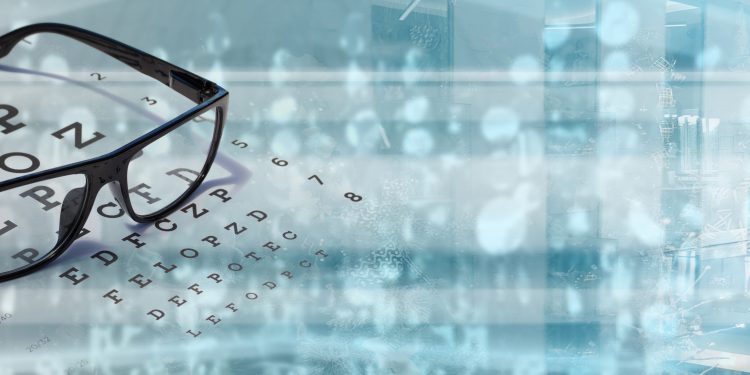By Deborah Zelinsky, O.D.
Why would someone visit an optometrist for memory problems? Because memories are built on our ability to “visualize” and “process” what we are seeing, feeling, smelling, touching, hearing, and thinking.
Visual processing is what enables us to respond appropriately to changes in the environment. That environment can include aromas, facial expressions, gestures, words heard, traffic patterns, even sports strategies. We make decisions and predictions on the basis of our understanding, and understanding comes from the visualization process, which involves using new experiences to compare and contrast with previous ones; in other words — memory.
When brain circuitry is disrupted due to injury or neurological disorders like post-traumatic stress disorder, people can become confused and exhibit inappropriate reactions and responses to movement, sounds, and light. People with learning problems often have not solidly developed patterns of signal processing, making it difficult for them to adapt to sudden changes in their environment, or to remain logical rather than becoming emotional. Their many visual systems are not always working properly.
So, how does all of this involve optometry?
At the Mind-Eye Institute, a multitude of visual pathways are tested in addition to eyesight, eye movement, and eye health. Then, an individualized program is designed (using therapeutic eyeglasses and other advanced optometric tools and methods) to help redevelop — or initially develop — visual processing capabilities. Often, as processing changes, so do symptoms of brain injuries and learning problems.
“Brainwear™” glasses, used in Mind-Eye assessments, bend light in different ways across the retina, which is made out of brain tissue. Light can be bent in a manner that selectively targets specific groups of receptors. These receptors, when activated, convert light into chemical signals, eventually triggering electrical signals that propagate through nerves. Those electrical signals can constrict musculature surrounding blood vessels, impacting ocular blood flow in a process called neuro-vascular coupling. Ocular blood flow is related to brain blood flow in the larger blood vessels. Basically, Brainwear glasses can regulate brain function through blood flow changes.
Using light to stimulate the retina not only affects neurovascular coupling, but it also leads to the creation of new brain signaling pathways supporting memory formation. For instance, people with Alzheimer’s disease struggle with memory. Recent studies indicate that these patients have altered vasculature, which can sometimes be detected by examining the blood vessels and nerves in the back of the eye.
Because the retina is part of the central nervous system, signals exiting it are linked to many brain pathways, including those leading to and from three memory-related structures — the hippocampus, prefrontal cortex, and amygdala. This circuitry is necessary for the various stages of memory, including information encoding, storage, and later retrieval.
Memories are also encoded with emotions and other sensory experiences and can be recalled when a person is exposed to certain sounds or sights. For example, a song heard on the radio may prompt one person to remember the music played at a wedding, another person to have thoughts of a past party, and yet a third to recall an event such as ice-skating to the music. Brain circuitry is at work when a sound triggers a memory that activates visualization (one of the many internal visual systems). The same can happen with a visual trigger. The sight of an old doll might prompt a memory from elementary school. Eye and ear memories are linked. Sights can trigger recall of sounds and vice-versa.
Being able to visualize also is linked to the ability to dream. In one recent case, a patient whose visual processing had been disrupted by a traumatic brain injury had been unable to dream for almost seven years until receiving help from the team at the Mind-Eye Institute. That patient lacked the visualization skills required to form the mental imagery needed for dreams.
Other skills, such as reading, also rely on visualization — the creation of mental imagery for later recall when learning. Reading uses visual memories to recognize words and auditory memories to remember and decode the sounds of those words. If auditory and visual memories are not in sync, reading becomes difficult to learn.
Mind-Eye patients often relate how disruptions in their visual processing have left them “emotionless, simply blank”, many times affecting their memory skills. They report difficulties retrieving proper words or remembering peoples’ names.
The brain is plastic, meaning it is readily able to change at the cellular level. Because of this elasticity, this adaptability, we can help patients develop new informational pathways in their brain, thereby building — or rebuilding — memory skills. Visual learning games can help rehearse the new skills until they become habits.
People do not realize that eyes are not simply for exploring the surrounding environment; many, many other visual skills are linked to retinal processing. Optometry is a profession currently being updated to address some of the processing problems people face today.
Deborah Zelinsky O.D. is a Chicago optometrist who founded the Mind-Eye Connection, now known as the Mind-Eye Institute. She is a clinician and brain researcher with a mission ot build better brains by changing the concept of eye examinations into brain evaluations. For the past three decades, her research has been dedicated to interactions between the eyes an dears, bringing 21st-Century research into optometry, thus bridging the gap between neuroscience and eye care.











